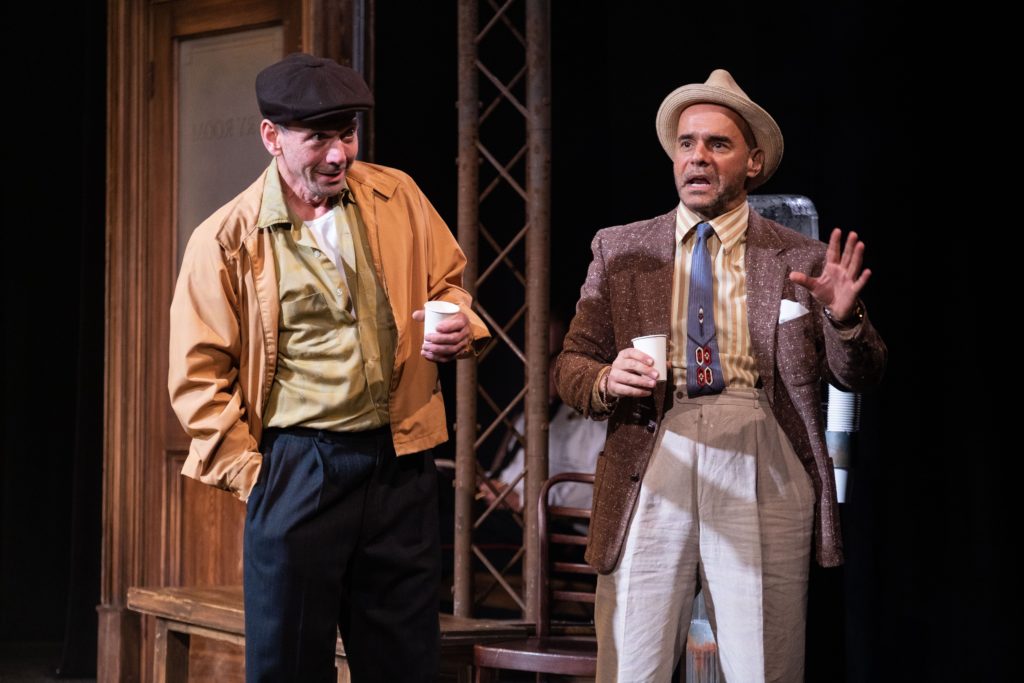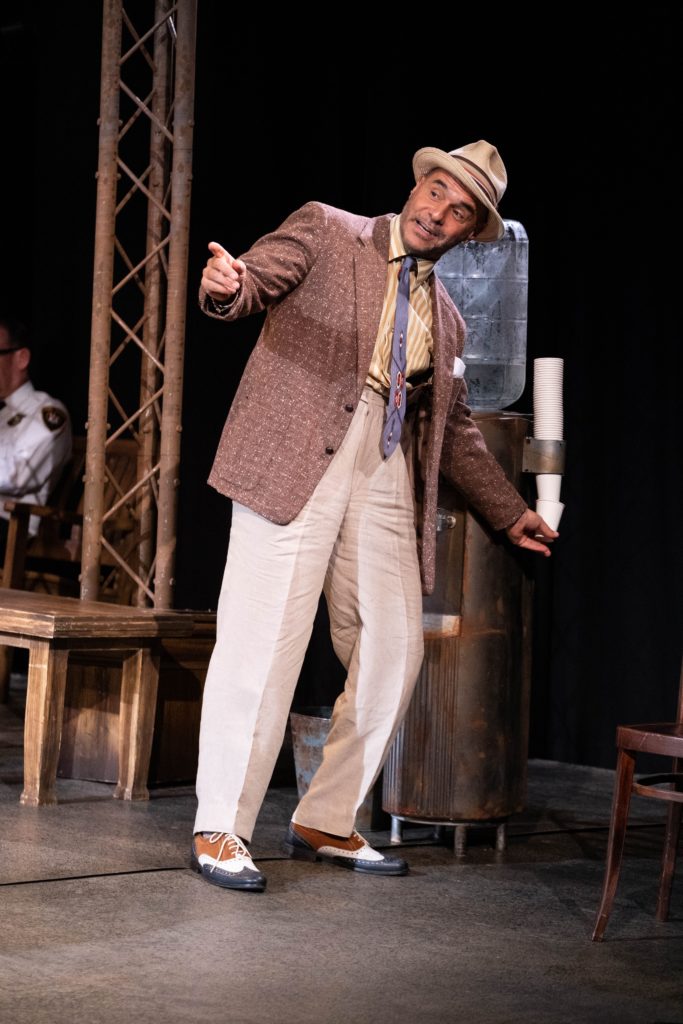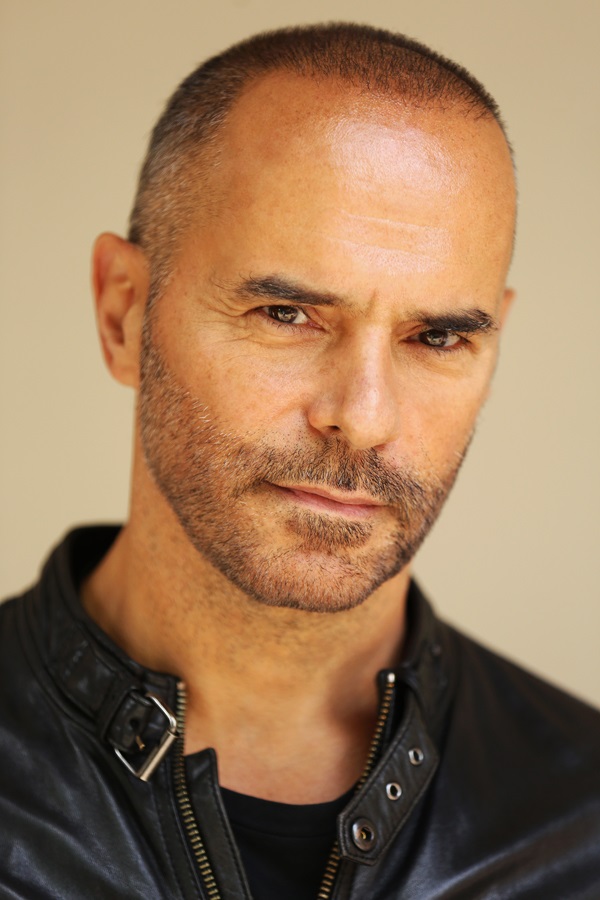
REGINALD Rose’s claustrophobic study of human nature, Twelve Angry Men, began as a teleplay, then transferred to the stage and finally to the screen in Sidney Lumet’s black-and-white 1957 film.
Now, after a record-breaking West End season, Rose’s courtroom thriller is back in session, on tour in its 70th year, visiting the Grand Opera House, York, from May 13 to 18.
The setting is not the courtroom but the jury deliberating room, where 12 men hold the fate of a young delinquent, accused of killing his father, in their hands. What looks an open-and-shut case, with an initial 11 to 1 guilty vote, becomes a fractious dilemma, where the jurors must each examine their self-image, personality, experiences and prejudices as the art of persuasion plays out.
Michael Greco, best known for his role as Beppe di Marco in EastEnders from 1998 to 2002, plays Juror 7 in Rose’s tableau of mid-20th century American angst.
‘I’d watched the film years ago and I loved it,” he recalls. “When I got a call to be in the show, a lot of my friends said, ‘oh my god, this is one of my favourite films, can’t wait to come’.
“It’s an amazing piece of writing, something that is for all ages, really from youngsters to older people who’ve known the show and have loved the film for years. People just love a murder mystery, a courtroom drama, seeing how it unfolds.”
Who is Juror 7, Michael? “In layman’s terms, I would describe him as ‘absolutely gagging to get to this huge basketball game’. It’s in three hours’ time and he can’t wait to go. He’s thinking, ‘yes, yes, yes, I can get there’, but then there’s a spanner in the works. I feel for him,” says the Chelsea fan. “He’s a funny character, a vexed character too.”

Preparing for a role, he says: “I think, as an actor, I always do my due diligence about what I would say about the character in the text, and then, secondly, you have to learn the subtext.
“Because he’s just called Juror 7, I give him a name and ask, ‘is he married?’; ‘is he an alcoholic?’; ‘has he been to prison?’, otherwise there’s no substance to him. Especially as I have to bring something new to him after that.”
Reflecting on Twelve Angry Men’s abiding impact in its depiction of men locking horns, Michael says: “It definitely resonates with today’s society. You will recognise some of the characters and the way that people are in their thinking and the way they are in their personalities.
“There are certain scenes where prejudices come out – and that’s still the case today. Like when a racist guy has a rant, he’s brought down very quickly.”
Michael, 53, looks back to his own family’s experiences in the 1950s. “I’m from an Italian immigrant family, who moved to London from Naples in the late-Fifties. They came to England without money, they didn’t speak any English, but they were welcomed with open arms. Prejudices were not so open.”
Michael’s character in Twelve Angry Men does have prejudices. “I decided to go over the top with this character because he’s someone people can associate with. The director [Christopher Haydon] just loved the comedy I brought to it and didn’t cut it back a bit. He’s just let me go with it,” he says.

“You have to go on this journey with him where you try to get the audience on his side because you can see his frustration, and then he reaches that point where his prejudices come out. But I can play that with openness because, wherever it comes from, this character is a good guy, but the situation brings out the worst in him.”
Putting human behaviour under the microscope, Michael says: “Every human being is the same in that we all get intrusive thoughts, where you think, ‘where did that come from?’, but you then dismiss them.
“But any psychiatrist would tell you it’s natural to have these thoughts coming into your head and to reject them…but some people do act on them.”
Michael rules out changing the configuration of Twelve Angry Men to six men and six women. “It’s very difficult to know what to say, but I don’t think it would work because of the testosterone and the physical reactions in the writing, and because women are not built in the same way psychologically and physically. It would be a completely different play if you did that.
“You can do things with Shakespeare’s plays, but when you write a play called Twelve Angry Men, the clue is in the title. The thing is, we get it in all forms of society, not just in politics, but in the bragging rights of football, for example. I despise the ‘tragedy chanting’. I can’t believe people can sink so low.”
Twelve Angry Men, Grand Opera House, York, May 13 to 18, 7.30pm plus 2.30pm, Wednesday and Saturday. Box office: atgtickets.com/york
